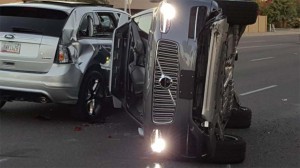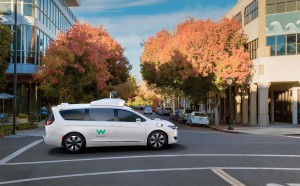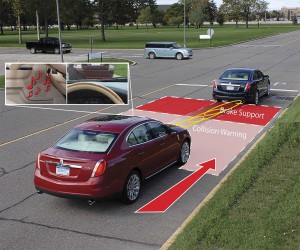If you listen to the experts, the coming age of the autonomous automobile will all but eliminate crashes and fatalities on U.S. roadways. But American consumers aren’t quite so confident. According to the new J.D. Power Tech Choice Study, motorists are wary of hands-free driving.
At the same time, they have become increasingly receptive to the flood of new, semi-autonomous advanced driver assistance system, or ADAS, technologies – such as forward collision warning and blind-spot detection – that are showing up on more and more of the latest vehicles.
“In most cases, as technology concepts get closer to becoming reality, consumer curiousity and acceptance increase,” said Kristin Kolodge, executive director of driver interaction and HMI research at J.D. Power and Associates. “With autonomous vehicles, we see a pattern where trust…in the technology…is declining.”
(Who is leading the race to bring autonomous vehicles to market? To find out, Click Here.)
The only exception is among Millennials who still show a strong level of interest in autonomous technology, according to the Tech Choice Study. The level of trust has even declined among the youngest group of motorists, so-called Gen-Z, over the past year.

Reports of incidents like this recent crash of an Uber autonomous prototype may be causing concern among American motorists.
Exactly why isn’t clear, though it could reflect publicity surrounding a series of incidents involving autonomous prototypes and semi-autonomous vehicles already on the road – such as the Tesla Model S that crashed into a truck in Florida in May 2016, killing former Navy SEAL Joshua Brown.
It may also reflect the fact that autonomous vehicles are in the news more than ever now, said Kolodge, and consumers don’t have enough personal experience with the technology to feel comfortable with it yet.
“I can tell you 100 percent I won’t ever own one of those cars,” said Kaila Ellis, a 23-year-old student at Michigan’s Northwood University, who attended a news conference sponsored by the Detroit Automotive Press Association to discuss the Tech Choice Study’s results.
Whether that will change is far from certain, though Power’s Kolodge suggested that as consumers become more familiar with autonomous driving technology they may become more open to it.
What’s clear is that “We’re going to see a seismic change in what a vehicle is and what it does,” said Power Vice President Dave Sargent. Despite concerns about fully autonomous vehicles, he noted, the Tech Choice study found that American drivers are becoming more and more open to features that could be described as semi-autonomous, as well as other high tech systems.
In fact, offered a choice of new technologies, advanced driver assistance systems accounted for seven of the top 10 choices. The five most popular were:
- Smart headlights whose capabilities can include turning into corners, adjusting their beams depending upon traffic and even widening in rural areas to help spot animals and pedestrians;
- Camera rearview mirrors that replace traditional mirrors with outside cameras. They offer a wider field of view and aren’t obstructed by passengers and headrests;
- Emergency braking and steering systems that can intervene if a driver doesn’t react quickly enough to help avoid a collision;
- Lane change assist systems that can automatically complete a pass or steer around objects in the road;
- Self-healing paint that can repair minor scratches.
The Tech Choice Study found that consumers were less open to new technologies that would significantly boost a vehicle’s price, however. Faced with hefty costs for technologies like lane change assist, the most popular tech features included basic navigation systems, onboard WiFi and camera-based rearview mirrors.
(GM adding 1,100 jobs at Cruze Automation to develop autonomous vehicles. Click Here for more.)
On the whole, younger motorists tend to be the most open to new technologies, according to the Power study. The curious exception is with autonomous driving, Gen-Z being nearly as cautious as older Baby Boomers. But among Millennials, 43% said they wanted to own a self-driving vehicle.
The study also found that those who have experienced a particular technology are more open to even more advanced systems. Tesla owners already can use their vehicles’ semi-autonomous Autopilot system, noted Kolodge, and are twice as interested in getting a fully autonomous vehicle than the average respondent to the Tech Choice Study.
The third annual version of the study was conducted during the first two months of 2017 and was based on responses from more than 8,500 U.S. owners of vehicles sold during the 2013 to 2017 model-years.
(VW unveils electric, autonomous I.D. Crozz SUV concept in Shanghai. Click Here to check it out.)



The five advanced driver assistance systems as listed above… Yes. I believe they are very useful and worth the price increase.
Fully autonomous vehicles… Absolutely NO! Why? Because this product relies on numerous computers in order to function. Computers are not 100% error free.